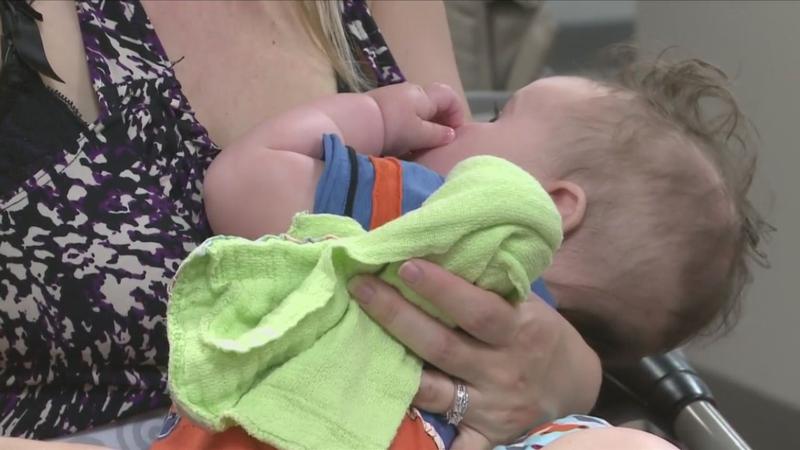In-Depth: URMC doctor on new research into COVID-19 antibodies in breast milk
[anvplayer video=”5069474″ station=”998131″]
ROCHESTER, N.Y. (WHEC) — The results of a new COVID-19 study are out, and you’ll want to hear this. It impacts new moms. The study was led by the University of Rochester Medical Center.
It is the first study to show both moms who had COVID-19 and moms who were vaccinated pass along their antibodies in breast milk, and those antibodies neutralize the virus. That means they stop it from replicating.
New moms have had a lot of questions about this, and now we have some concrete data thanks to this study from URMC and New York University.
Samples of breast milk were collected from 77 mothers — 47 in the infected group, 30 in the vaccine group. Those who were vaccinated had received the Pfizer or Moderna shots.
The research shows the antibodies from COVID-positive mothers were passed on in breast milk for three months after infection.

[File photo, News10NBC]
For moms who were vaccinated, there was a small decline in antibodies about three months after they got their shots.
So does this mean infants who get antibodies in breast milk are protected against COVID? That’s what News10NBC’s Nikki Rudd asked the co-authors of the study at URMC.
"What we know for sure is that a breastfed child is drinking these antibodies," explained Dr. Bridget Young. "That’s very different than actually having antibodies in your own blood, for example, after receiving a vaccination."
Dr. Young is an assistant professor in the Division of Pediatric Allergy and Immunology at URMC.
Dr. Kirsi Jarvinene-Seppo is the URMC Chief of Pediatric Allergy and Immunology.
"In terms of what happens in an infant when she or he ingests the breast milk that has these antibodies, we are not sure whether there is Clinical Protection," added Dr. Jarvinene-Sepoo.
Both doctors say the antibodies passed on in breast milk are likely providing some protection to the baby. We just don’t know yet if it would be enough to protect against an active infection.
Click here to read more about the study.